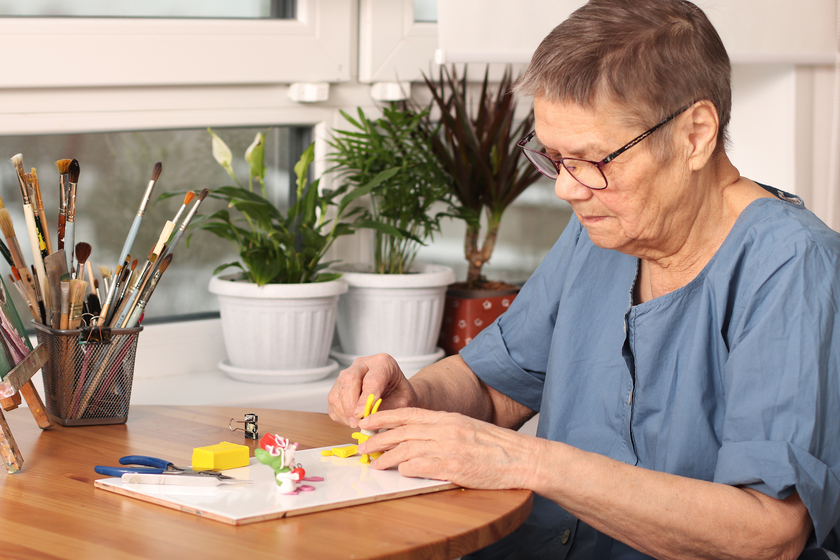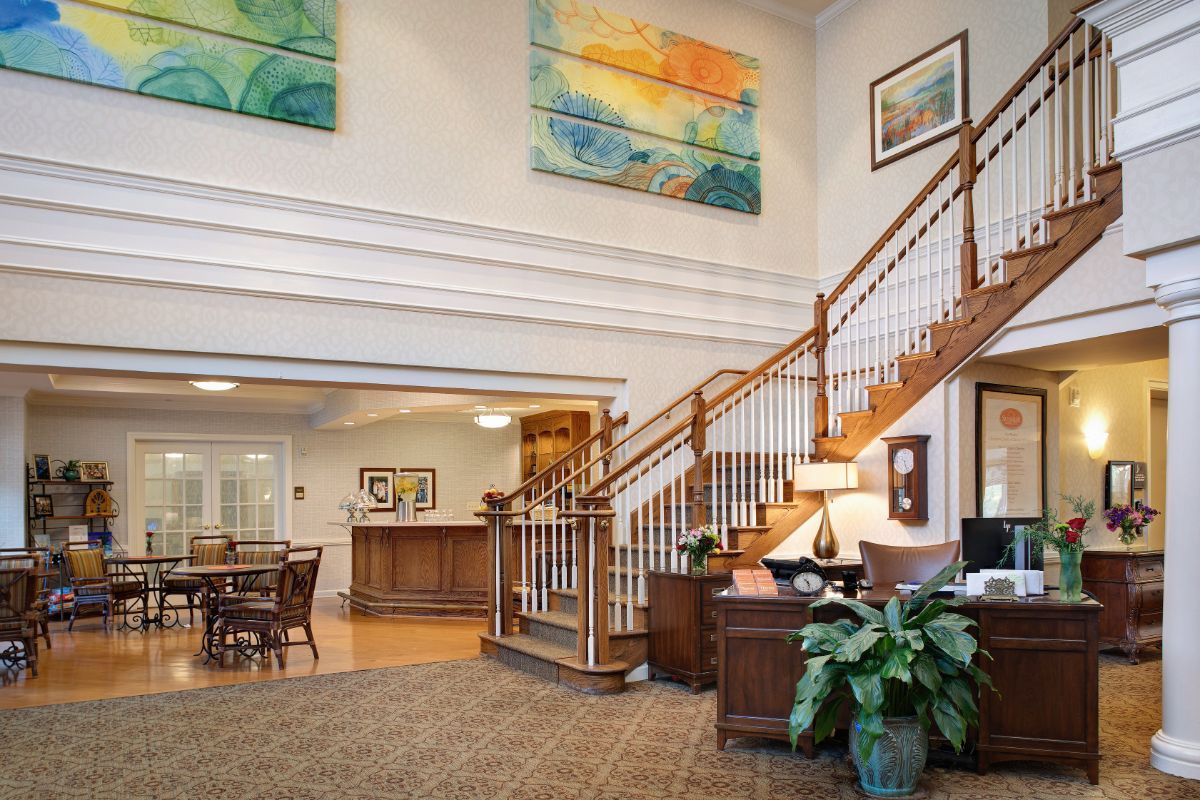Personalized Memory Care for Dementia in a Warm Space
Personalized Memory Care for Dementia in a Warm Space
Blog Article
Everything About Memory Care Providers: Why Little Memory Care Houses Are a Fantastic Option
Memory care solutions play a necessary duty in supporting individuals with Alzheimer's and dementia. Small memory treatment homes stand apart for their customized method and intimate setting. With reduced staff-to-resident proportions, these homes foster stronger links and customized care. Residents profit from improved social interactions and a risk-free atmosphere. As families check out choices, recognizing the unique benefits of little memory treatment homes ends up being vital. What aspects should be considered when picking the ideal home?
Recognizing Memory Treatment Solutions
While several may recognize with basic senior treatment options, comprehending memory care solutions is vital for family members dealing with the obstacles of cognitive decline. Memory care especially deals with individuals with problems such as Alzheimer's disease and various other forms of dementia. These solutions provide an organized environment that concentrates on enhancing the high quality of life for residents with specialized care and support.Memory treatment centers are created to guarantee security and security, usually featuring safeguarded atmospheres to avoid roaming. Educated team member are available all the time to help with daily activities, medication management, and individual care. Additionally, memory treatment programs commonly include cognitive excitement activities, customized to engage homeowners and advertise psychological wellness. Families can take advantage of understanding these services, as they enable educated choices concerning their enjoyed ones' care, guaranteeing that their particular requirements and preferences are addressed in a compassionate and supportive way.
The Advantages of Small Memory Care Houses
Little memory care homes supply distinct advantages that can significantly boost the lifestyle for residents with cognitive problems. One significant advantage is the intimate setting, which permits tailored interactions among personnel and residents. This smaller sized setup cultivates purposeful connections, reducing sensations of seclusion and anxiousness frequently experienced by individuals with memory issues.Additionally, the reduced staff-to-resident ratio in tiny memory care homes enables caregivers to offer even more conscientious guidance and support. This method not only boosts safety and security but also advertises a complacency for the residents.Moreover, tiny memory care homes can adapt rapidly to the one-of-a-kind requirements and preferences of each citizen, permitting a more homey environment. Such an atmosphere can encourage social interaction and engagement in activities, inevitably enriching the everyday experiences of those living with cognitive disabilities.
Personalized Care Program for Residents
Customized treatment strategies are vital in memory treatment homes, as they satisfy the one-of-a-kind needs and choices of each citizen. These strategies begin with comprehensive assessments conducted by experienced professionals, who review cognitive abilities, medical history, and individual interests. This tailored technique guarantees that care is not only effective yet likewise considerate of each person's dignity and autonomy.Moreover, personalized treatment strategies are versatile, enabling adjustments as citizens' demands progress with time. This flexibility cultivates a sense of safety and security and familiarity, which is essential for people dealing with memory obstacles. Caregivers are educated to execute these strategies consistently, supplying support that lines up with the homeowners' routines and preferences.Ultimately, individualized treatment strategies improve the top quality of life for homeowners by advertising interaction, well-being, and independence, making them a fundamental facet of memory treatment services in little memory care homes.
Developing a Home-Like Setting
Creating a home-like environment is essential for fostering convenience and experience in memory treatment setups, as it significantly impacts homeowners' emotional health. Small memory care homes frequently prioritize customized touches, such as warm shade combinations, family pictures, and familiar furnishings arrangements, which help locals really feel much more at convenience. Including elements reminiscent of a standard home, like comfortable living rooms and public locations, encourages a sense of belonging.Moreover, making use of all-natural light and outside areas can improve the atmosphere, promoting relaxation and tranquility. Personnel play a significant duty in maintaining this environment by engaging with citizens in a thoughtful manner, treating them like household. Regular activities, such as food preparation or gardening, can likewise add to a home-like feel, using opportunities for homeowners to take part in purposeful experiences. Overall, developing a supporting setting sustains cognitive function and psychological stability, making it an essential element of memory treatment solutions.
Boosted Social Communication and Community
Improved social interaction and area are essential elements of memory treatment solutions. By cultivating personalized social interaction and developing a family-like environment, these solutions promote significant links amongst homeowners. Group activities and occasions even more encourage participation, helping individuals feel more included and supported.
Customized Social Engagement
While social communication is important for general wellness, many individuals with memory impairments frequently have a hard time to engage meaningfully with others. Individualized social involvement in memory treatment homes addresses this difficulty by producing tailored tasks that provide to locals' special passions and capabilities. By concentrating on private preferences, caretakers can promote connections that resonate deeply with everyone. Tasks such as art treatment, music sessions, and directed discussions advertise cognitive stimulation and psychological expression. In addition, tiny group settings urge friendship and enable even more intimate communications, improving sensations of belonging. This strategy not just deals with feelings of isolation yet additionally equips citizens to preserve a feeling of identity, ultimately adding to improved psychological health and top quality of life.
Family-like Environment
In a memory treatment setting, cultivating a family-like ambience greatly boosts social communication and constructs a sense of community among residents. Smaller memory care homes usually prioritize intimate atmospheres, enabling residents to develop closer connections with each other and personnel members. This nurturing ambience promotes depend on, which is necessary for individuals with memory problems. Homeowners are most likely to talk and share experiences, developing a helpful network that reduces sensations of isolation. The knowledge of shared rooms and routines contributes to a sense of belonging, even more urging social communication (personalized memory care). In such setups, psychological bonds prosper, resulting in improved overall wellness and a better of life for homeowners as they browse their daily experiences together
Group Activities and Events

Safety And Security and Safety Functions in Little Houses
Lots of tiny homes made for memory treatment integrate essential safety and security and protection attributes to ensure the well-being of residents. These homes often utilize safe and secure access and leave indicate stop wandering, a common worry amongst people with memory impairments. Additionally, monitoring systems and alarm mechanisms boost monitoring, making certain that personnel can promptly respond to any kind of uncommon activities.Interior formats are tailored for safety, with lessened hazards such as sharp edges and clutter-free pathways. Handrails and non-slip flooring are normally set up to decrease visite site the threat of falls. Personnel are learnt emergency situation procedures, guaranteeing they are planned for numerous situations.Moreover, individualized treatment strategies might consist of analysis of individual security requirements, offering customized options for each resident. On the whole, these security and safety and security functions develop a caring setting where citizens can flourish while you could try this out keeping their dignity and freedom.
Exactly how to Select the Right Memory Treatment Home
How can households guarantee they choose the most suitable memory care home for their liked ones? The choice calls for mindful factor to consider of several elements. First, households must review the facility's personnel qualifications and training, making sure that caretakers are experienced in handling memory-related problems. Next, it's essential to analyze the home's atmosphere, concentrating on safety and security features and whether it cultivates a feeling of area and belonging. Seeing the facility can give insight right into daily activities and the social environment, which are vital for psychological stimulation and emotional well-being. Furthermore, households need to ask about the care plans used, guaranteeing they are customized to private needs. Thinking about the home's location and ease of access for household gos to can contribute to a smoother change. By resolving these facets, families can make an enlightened decision that prioritizes their loved one's comfort and lifestyle in a memory treatment setup.
Often Asked Concerns
What Credentials Should Personnel Members in Memory Care Residences Have?
Employee in memory care homes need to possess pertinent accreditations, experience in mental deterioration care, solid communication skills, and concern. Recurring training in behavioral administration and healing interventions boosts their ability to sustain residents successfully.
How Do Memory Treatment Solutions Differ From Typical Assisted Living?
Memory care solutions focus especially on individuals with memory problems, offering customized assistance and organized environments. On the other hand, conventional assisted living offers basic help with daily activities, doing not have the customized method needed for those with cognitive difficulties.
What Sorts of Activities Are Supplied in Memory Care Homes?
Memory treatment homes generally use a selection of activities developed to engage citizens. Usual alternatives include art therapy, music sessions, cognitive video games, physical workouts, horticulture, and gatherings, all targeted at enhancing wellness and cognitive function.
Can Locals Bring Their Own Valuables to Memory Care Houses?
Homeowners can generally bring their very own possessions to memory treatment homes, allowing them to customize their home - personalized memory care. This practice helps produce an acquainted setting, promoting convenience and a feeling of identification for the people

Just How Are Relative Involved in the Treatment Refine?
Relative play an important function in the treatment process, often taking part in decision-making, participating in care conferences, and supplying psychological assistance. Their involvement cultivates a collaborative atmosphere, improving the homeowner's overall health and lifestyle. While many might be acquainted with general look these up elderly care choices, understanding memory care services is essential for families facing the challenges of cognitive decline. These solutions provide a structured environment that focuses on boosting the quality of life for homeowners with specialized care and support.Memory treatment centers are developed to assure security and protection, commonly featuring secured settings to stop wandering. Individualized treatment plans are vital in memory treatment homes, as they cater to the unique demands and choices of each homeowner. Team participants in memory treatment homes must have relevant qualifications, experience in mental deterioration care, strong communication abilities, and empathy. Memory care services focus specifically on people with memory problems, giving specific support and structured environments.
Report this page